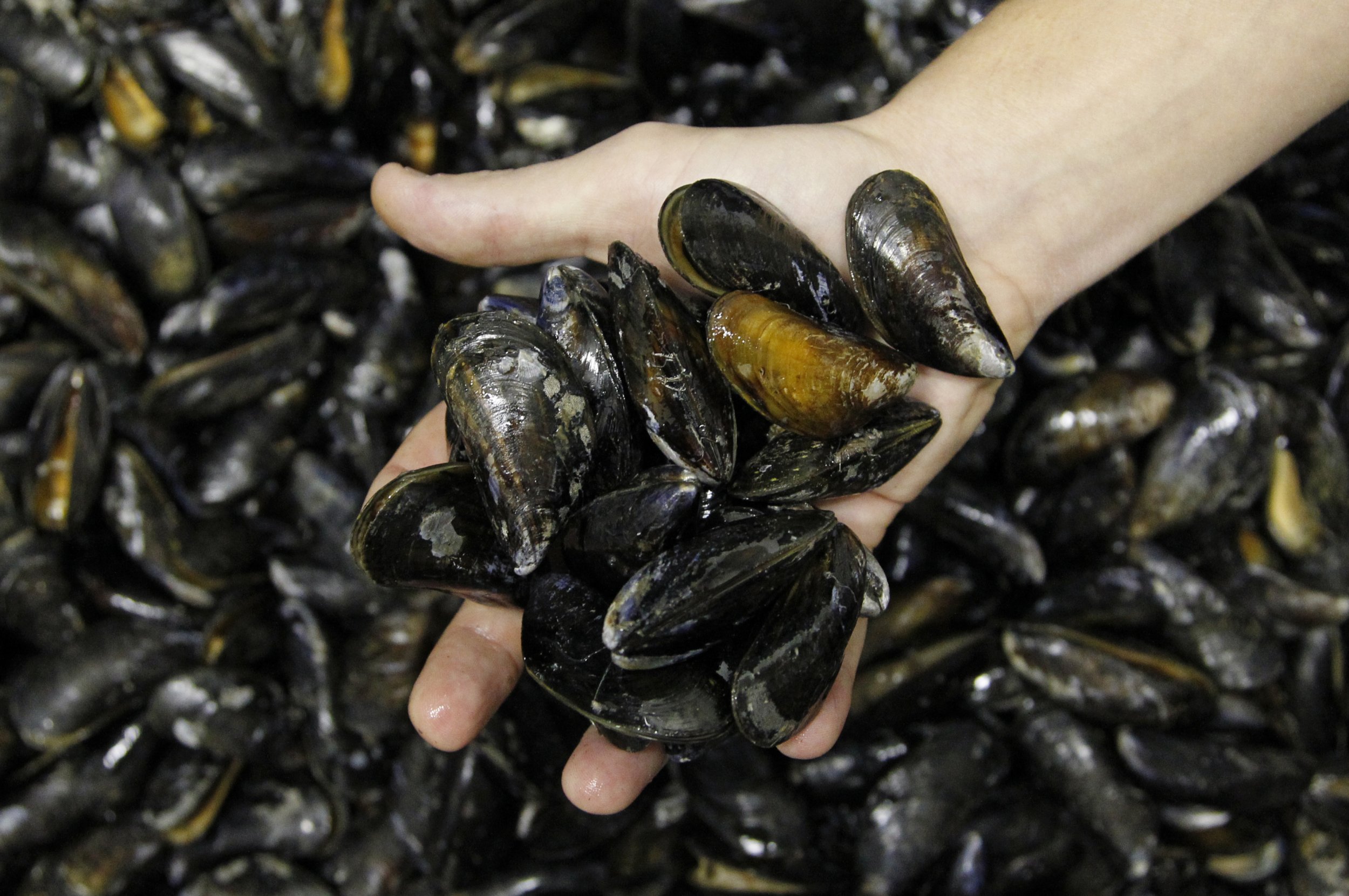
Mussels suspended from rafts might be the next superheroes to clean up urban rivers and estuaries—silently absorbing a common, but less obvious, contaminant: nitrogen.
Researchers from the National Oceanic and Atmospheric Administration found that the ribbed mussel, Geukensia demissa, can feed on phytoplankton and bacteria, ultimately absorbing the excess nitrogen from the rivers. Nitrogen can cause an overgrowth in plants—though technically they're nutrients that provide food for everything from microscopic plankton to algal blooms and seaweed. That overgrowth blocks sunlight from the depths of the water, which can kill off fish, sea grass habitat, and suffocate the underwater ecosystems from a lack of oxygen.
"If they're eating this excess of nitrogen," said Eve Galimany, lead author of the study, "they're also clearing the water so the sunlight can go deeper."
Nitrogen is not toxic, but, researchers said, too much of a good thing can be bad. The condition of excess nutrients—called eutrophication—has become increasingly common from extra storm runoff, waste treatment facilities, livestock waste, and agriculture. In cities like New York, natural filters from runoff like salt marshes have long disappeared.
"As cities have grown up, and the amount of pavement has increased, that has also increased the amount of nitrogen and other pollutants that are running off of our cities," said Julie Rose, co-author and research ecologist at NOAA. The mussels could be an "additional tool" to clean up waterways in cities, Rose said. Plus, as this species is native to all of the East Coast, there is no concern that it would be an invasive species or disturb the current ecosystem.
Researchers collected hundreds of pounds of spat, or the raw material for cultivating mussels. They were cultivated and then tracked for a year in the Bronx River Estuary in New York to evaluate their health and document their reproductive cycle. Several adult mussels were tested in filter feeding experiments during warmer months when the mussels were actively feeding using the biodeposition method, which Galimany developed.

Their study concluded that this method of nutrient bioextraction compared favorably to current best practices. The mussels also provided a way to target excess nutrients in the river itself, rather than intercepting the nitrogen before it gets to the river, Rose said. She explained that some nitrogen is already in the water, and technologies to intercept nutrients would miss removing that excess in water.
Using this species of mussels was also essentially restoring the ecosystem that had been previously lost. Ribbed mussels used to flourish on the coasts.
"It has been lost to ports, bulkheads, and all kinds of waterfront infrastructure," Rose said.
Using mussels in this way has other added benefits too, Rose and Galimany said. They could potentially be used for fertilizer or feed for certain animals, which, in turn, would recycle the nutrients back into the land.
Uncommon Knowledge
Newsweek is committed to challenging conventional wisdom and finding connections in the search for common ground.
Newsweek is committed to challenging conventional wisdom and finding connections in the search for common ground.
About the writer
Sydney Pereira is a science writer, focusing on the environment and climate. You can reach her at s.pereira@newsweekgroup.com.
To read how Newsweek uses AI as a newsroom tool, Click here.





